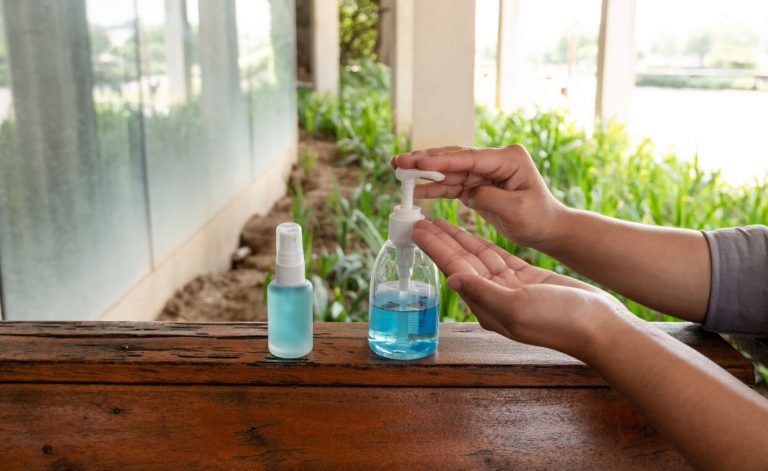How to Document for Tele-Mental Health During the Covid-19 Pandemic
Adjusting to Telehealth
We’re all trying to adjust to a new way of living and providing mental health services. I’m going to help you navigate the needs for tele-mental health documentation during the Corona virus pandemic.
Most insurance companies are now finally on board with offering tele-mental health and phone sessions. They’re bending their rules. Thus we can provide greater access to services during the pandemic. We can help also help prevent the spread of the disease and keep others and ourselves safe.
We’re on the front lines helping people cope with more anxiety and more depression caused by the uncertainty of this pandemic. We’re helping them find connection and meaning during a time when we are having to learn to navigate whole new systems that we never even intended to learn. If you’re like me, you’ve been overwhelmed with learning and implementing all the details necessary to be compliant with the requirements for telehealth. I’m here to guide you through those requirements so that you can put your attention towards taking care of your clients.
Documentation Requirements Specific to Telehealth
Some of the requirements for telehealth apply to all providers in medicine. Others are specific to tele-mental health. So, requirements for telehealth are mostly the same as those that are required for face to face sessions. Requirements like date of service, start and stop time, the date of the next session, the interventions, mental status, and the progress are still required.
You do need to include a statement that the service was provided using tele-health or telephone. It can be as simple as, “this session was provided by video conference.”
You also need to put a different location in your 1500 form for the insurance company. The location of the patient is 02 for home.
You also need to include the location of the provider; are you providing teletherapy from your home or office? When we are not responding to an international crisis, the therapist is supposed to conduct therapy from the office address that’s on file with the insurance company. But during this time, we can be providing treatment from our homes that you don’t normally consider your office. If you put that you are providing sessions from home, you should specify that you are providing therapy from home during pandemic.
You also need the names of all the people who are participating in the video conference or the phone session and their role(s). As therapists, we’re pretty much used to doing this because we have to identify whether we’re doing an individual session or a family session. If we’re doing a family session, document who is present, whether it’s the partner or a parent or the children and include their names.
Documentation Requirements Specific to Tele-Mental Health
Now that we’re engaged in what many are calling social distancing and what I prefer to call physical distancing, there are fewer restrictions on the type of service we can provide when it comes to behavioral health requirements and documentation. In other words, most insurance companies covered video sessions but not phone sessions. But now, many companies are also covering phone sessions. So, I really want to encourage you to contact the insurance companies you’re empaneled with to find out if they are allowing you to do phone sessions during the pandemic. If you are short on time, ask your clients if they are willing to contact the insurance company and give them specific instructions on what to ask for.
When providing tele-mental health, some insurance companies require different modifiers while others don’t. A modifier is either GT or 95. So again, find out from your insurance company, or your biller if you have one, which modifier to use with the service code. It would look like “90834GT” or “9083795.” Again, ask your insurance company.
Now, here’s one that lots of people don’t know about: we need a consent, a special consent, to treat using tele-mental health. You can get one for free at my website by clicking www.DocumentationWizard.com/consent. NASW of Massachusetts created this specifically for the pandemic and they have given permission to disseminate this consent widely.
Now, it’s a little tricky getting a signed consent. I’ve sent the consent to my clients by email. I’ve asked them to print it out, sign it, and either snail mail it back or scan it and email it back. You can also have your client print it out if they have a printer and sign it, take a photo of it with their phone, and send it by phone. Then print it and put it in their file. For people who don’t have that capability, you can send the consent it in the body of the email and have them send it back, because then it is verified that it came from their email address. In my documentation, I put, “consent was verbally given and will be received in the mail,” or, “was sent in the mail.” Just be sure to include whatever is appropriate for your particular client.
I know that the phone and email for most of us is not HIPAA compliant. We have to allow ourselves a little flexibility. I know that we are all as therapists who are really, really concerned with HIPAA and maintaining client confidentiality. But you can also ask your client if they are willing to give you permission to use a non-encrypted form of communication during this time and document that. We just all have to breathe and hope the insurance companies will be flexible during this time.
Thank You for Being a Tele-Mental Health Provider
Things are changing rapidly. They could change again. These are the documentation requirements that I know now and they seem pretty straightforward. I’m going to do my best to stay on top of the changes and let you know about them as they happen (if they happen).
I want to thank you for all the hard work that that you do to help everybody, all of your clients, your family, and your friends cope with this time and to stay connected. I hope this little bit of information about documentation during the Covid-19 pandemic helps reduce a little bit of your anxiety and lets you know that we’re all going through this together.
For your free Consent for Tele-Mental Health, visit www.DocumentationWizard.com/consent. I’ve included 3 different formats to best suit your needs:
- Word document: for therapists, not social workers, who need to make changes
- PDF: for social workers who do not need to make changes and have no signature capability
- Fillable PDF: for social workers/clients who do have signature capability
Since many of you are physically distancing yourselves and staying at home more, I’ve also decided to offer a significant discount on my online workshop, Misery or Mastery: Documenting Medical Necessity for Psychotherapists. It guides you through the process of writing treatment plans, session notes, and the other essential clinical documents. I’m also offering discounts on all the Master Forms packages. Use the coupon code, “consent” at checkout. Be well!

Beth Rontal, LICSW, a private practice therapist and the Documentation Wizard® is a nationally recognized consultant on mental health documentation. Her Misery and Mastery® trainings and accompanying forms (in English and Spanish) are developed to meet strict Medicare requirements. Beth’s Documentation Wizard training program helps clinicians turn their clinical skill and intuition into a systematic review of treatment that helps to pass audits, protect income, maintain professional standards of care, reduce documentation anxiety and increase self-confidence. Beth’s forms have been approved by 2 attorneys, a bioethicist, and a billing expert and have been used all over the world. She mastered her teaching skills with thousands of hours supervising and training both seasoned professionals and interns when supervising at an agency for 11 years. Her newest initiative, Membership Circle, is designed to empower psychotherapists to master documentation with expert guidance, efficient strategies, and a supportive community.



